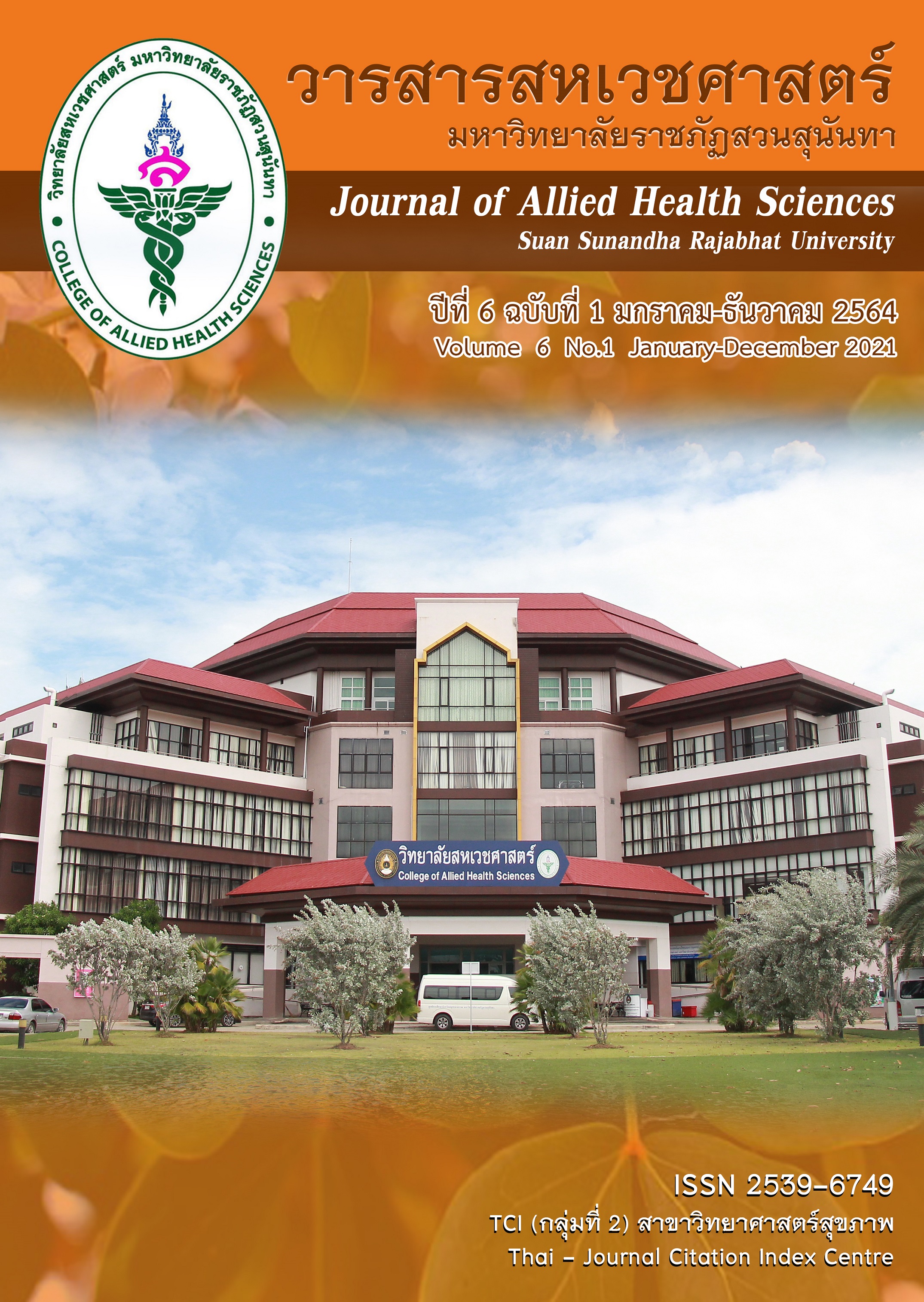การใช้สเตียรอยด์ฮอร์โมนในการเกษตร การตกค้างในอาหาร และสิ่งแวดล้อม
Main Article Content
บทคัดย่อ
การตกค้างของสารสเตียรอยด์ฮอร์โมน (steroid hormone) ในอาหาร และสิ่งแวดล้อมเป็นปัญหา
ที่กำลังได้รับความสนใจ เนื่องจากสารสเตียรอยด์ฮอร์โมนสามารถกระจายเข้าสู่ ดิน น้ำ น้ำใต้ดิน ห่วงโซ่อาหาร ซึ่งสามารถเข้าสู่ร่างกายมนุษย์ได้จากการบริโภคอาหารที่ปนเปื้อน การใช้สารสเตียรอยด์ฮอร์โมนในการเกษตร เช่น การใช้ฮอร์โมนเอสตราไดออลเพื่อกระตุ้นการตกไข่ของแม่โค และการใช้เทสโทสเทอโรนเพื่อเหนี่ยวนำ
เพศปลานิลให้เป็นเพศผู้ ยังไม่มีการควบคุมกระบวนการใช้ และการกำจัดสารเหล่านี้ในน้ำที่ปล่อยออกจากฟาร์มเพาะเลี้ยง ส่งผลให้เกิดการปล่อยสารสเตียรอยด์ฮอร์โมนออกสู่สิ่งแวดล้อมอย่างต่อเนื่อง และก่อให้เกิดปัญหา endocrine disruptors ในสิ่งแวดล้อม และมนุษย์ ซึ่งจะส่งผลระยะยาวต่อสุขภาพของสัตว์ต่าง ๆ ในระบบนิเวศ รวมทั้งกระบวนการทำงานของระบบในร่างกายมนุษย์ที่เกี่ยวพันกับฮอร์โมนเพศ องค์การอนามัยโลก
ได้กำหนดค่า acceptable daily intake ของสารสเตียรอยด์ฮอร์โมนไว้เพื่อเป็นการเฝ้าระวังผลกระทบ
ต่อสุขภาพมนุษย์ สหภาพยุโรปคำนึงถึงผลกระทบต่อสุขภาพของประชากร โดยเฉพาะวัยก่อนเจริญพันธุ์ที่อาจจะได้รับฮอร์โมนจากอาหารและเกิดปัญหาก่อกวนการทำงานของต่อมไร้ท่อ สหภาพยุโรปจึงห้ามใช้ฮอร์โมนเพศ
6 ชนิด เพื่อปกป้องสุขภาพอนามัยของประชากร นักวิทยาศาสตร์ และนักวิชาการทั่วโลกให้ความสำคัญ
ต่อการศึกษาการตกค้างของฮอร์โมนในสิ่งแวดล้อม ในอาหาร ในดิน ในน้ำ และน้ำใต้ดิน มีการศึกษาจากหลายแหล่งรายงานว่าพบการตกค้างของฮอร์โมนเพศหลายชนิดใน อาหาร น้ำ น้ำใต้ดิน ดินตะกอน ดังนั้นการศึกษา
ถึงลักษณะของสารสเตียรอยด์ฮอร์โมน การใช้ในกิจกรรมมนุษย์ และปริมาณการตกค้างในสิ่งแวดล้อม
จึงควรกระทำอย่างต่อเนื่อง
The problem of steroid hormones residues in food and environment is of interest due to the fact that steroid hormones can distribute to soil, water, ground water, food chain which can cause human exposure by consumption of contaminated food. Utilizations of steroid hormones in agriculture such as using of estradiol to stimulate ovulation in cow and using testosterone for induction the male fingerlings in Nile tilapia have not supervised and
the drainage of water contaminated with hormones have been not controlled. Most of these compounds are classified as endocrine disrupting substances which will cause the long-term adverse effect to animals in ecosystem and human metabolism relating to sex hormones.
The world health organization (WHO) has set the acceptable daily intake value for hormone
in order to monitor the adverse impact to human health in each age cycle particularly
the prepubertal groups which will expose hormones from food and receive endocrine disruptors problems. The European union has prohibited the use of 6 major hormones in order to protect population health. Scientists over the world pay an attention to the residues of hormones
in the environment, food, soil, water and ground water. There have been reported from several hot spots that the residues of several hormones appeared in food water ground water
and environment. Therefore, studying the characteristics of steroid hormone, utilization relating to human activities and the residues level of hormones in the environment should be addressed consistently.

